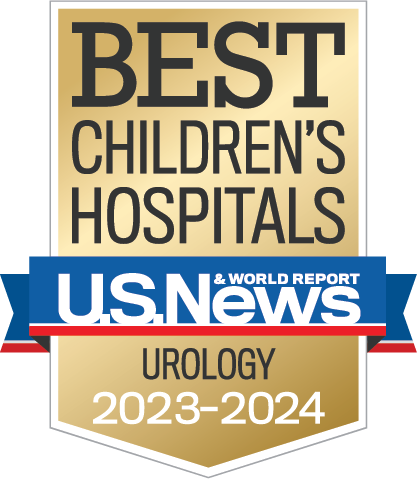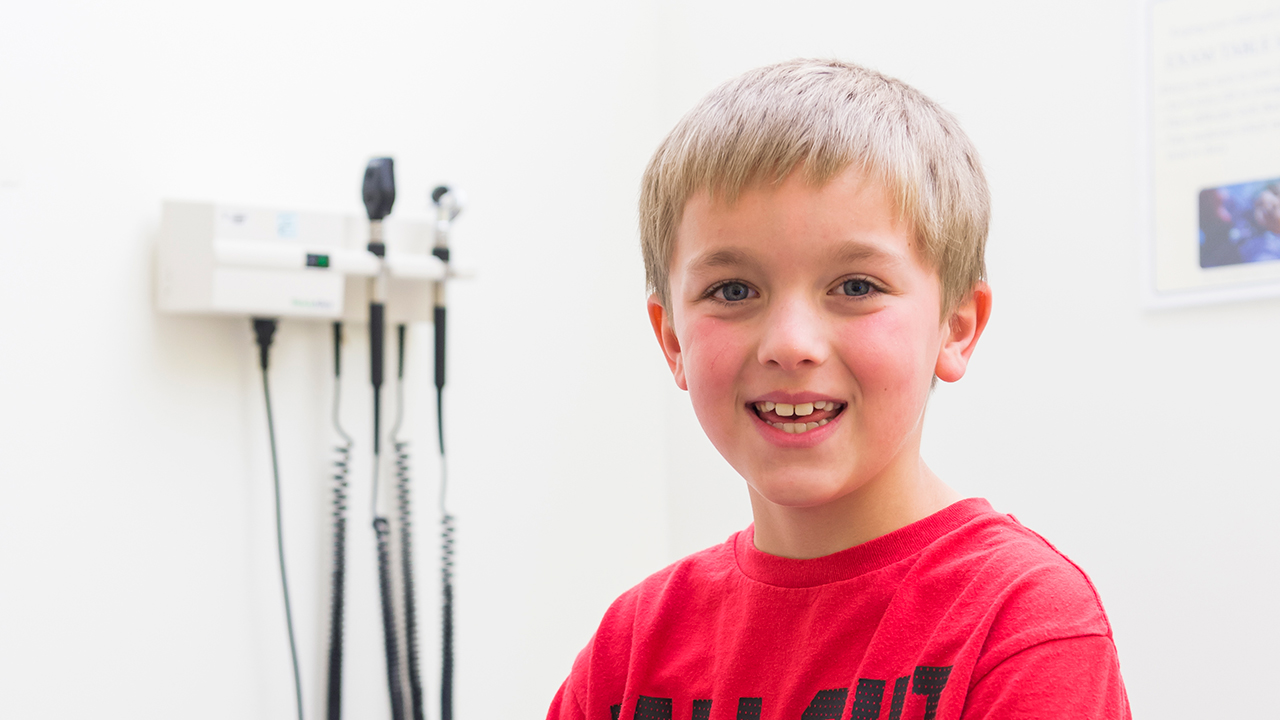- Doctors & Departments
-
Conditions & Advice
- Overview
- Conditions and Symptoms
- Symptom Checker
- Parent Resources
- The Connection Journey
- Calm A Crying Baby
- Sports Articles
- Dosage Tables
- Baby Guide
-
Your Visit
- Overview
- Prepare for Your Visit
- Your Overnight Stay
- Send a Cheer Card
- Family and Patient Resources
- Patient Cost Estimate
- Insurance and Financial Resources
- Online Bill Pay
- Medical Records
- Policies and Procedures
- We Ask Because We Care
Click to find the locations nearest youFind locations by region
See all locations -
Community
- Overview
- Addressing the Youth Mental Health Crisis
- Calendar of Events
- Child Health Advocacy
- Community Health
- Community Partners
- Corporate Relations
- Global Health
- Patient Advocacy
- Patient Stories
- Pediatric Affiliations
- Support Children’s Colorado
- Specialty Outreach Clinics
Your Support Matters
Upcoming Events
Public Meeting: 2024 Community Benefit and Hospital Transformation Program
Tuesday, May 14, 2024Join Children's Hospital Colorado at one of our virtual events to learn...
-
Research & Innovation
- Overview
- Pediatric Clinical Trials
- Q: Pediatric Health Advances
- Discoveries and Milestones
- Training and Internships
- Academic Affiliation
- Investigator Resources
- Funding Opportunities
- Center For Innovation
- Support Our Research
- Research Areas

It starts with a Q:
For the latest cutting-edge research, innovative collaborations and remarkable discoveries in child health, read stories from across all our areas of study in Q: Advances and Answers in Pediatric Health.


Retroperitoneal Lymph Node Dissection (RPLND)
At Children’s Hospital Colorado, we treat the big things, the small things and everything in between.

What is retroperitoneal lymph node dissection (RPLND)?
A retroperitoneal lymph node dissection (RPLND) is the surgical removal of the lymph nodes in the retroperitoneum (behind the intestines). Doctors typically perform a RPLND to treat cancer in the adrenal glands, kidneys and testicles.
Lymph nodes exist in many parts of the body, but RPLND is a procedure that removes the lymph nodes from the retroperitoneum. The retroperitoneum is an area located at the back of the abdomen, behind the intestines. Lymph nodes are small, bean-shaped structures that filter cancer cells and other particles in lymph, which is a fluid containing white blood cells. Retroperitoneal lymph nodes are located between your child’s kidneys, along the main blood vessels, the vena cava and the aorta.
Types of pediatric retroperitoneal lymph node dissection
Your child’s surgeon can perform RPLND in two ways, depending on the tumor’s type, size and spread. We’ll talk with you about the approach that’s right for your child.
- Open surgery: The surgeon makes an incision from the bottom of the ribcage to the pubic area and removes the lymph nodes through this incision. This method allows the surgeon to thoroughly check the abdomen and surrounding tissue for any tumor spread. This is the most common method of RPLND.
- Laparoscopic RPLND: We sometimes use this type of minimally invasive surgery for smaller tumors that haven’t spread. We make small incisions in the abdomen, insert a laparoscope (tiny camera) and remove the lymph nodes with special surgical instruments. The benefits of this method include a shorter hospital stay, faster recovery and less pain afterward.
How to prepare for RPLND in children
If your child’s doctor recommends RPLND, you will probably have questions and concerns. Be sure to share these with your doctor — the answers can help reduce yours and your child’s anxiety so they can focus on healing. Children’s Colorado locations are slightly different when it comes to checking in for surgery, learn about checking in to each location. If you have other questions, learn more about preparing for surgery at Children’s Colorado.
What to expect on the day of surgery
- Check in to the hospital: Complete paperwork and talk with the care team about the procedure.
- Your child goes into surgery: We use child-friendly methods to keep your child safe and comfortable. Our pediatric anesthesiologists give your child medicine so they fall asleep and don’t feel pain during the procedure.
- Wait during the procedure: We have a comfortable waiting area where the doctor can find you when the procedure is finished.
What to expect after surgery
Your child usually stays in the hospital for 5 to 7 days after RPLND surgery.
- Recovery: We take your child to the recovery room until they wake up and their blood pressure, pulse and breathing are stable. Some children will need to stay in the Intensive Care Unit (ICU), but most will be transferred to a regular hospital room. We’ll give them medicine to treat any pain or discomfort.
- Caring for surgical dressings: Your child will wear a dressing for several days and may have a small tube that drains fluid from the incision. We’ll show you how to care for these dressings before you leave the hospital.
- Preventing constipation: Most children do not have a bowel movement for several days after the surgery. To counteract the constipation, we’ll give them stool softeners and laxatives in the hospital. At home, you should feed them a diet that includes plenty of fiber and fluids, especially if they are taking medication for pain, which can often increase constipation. Gentle laxatives like magnesium hydroxide (Milk of Magnesia) or psyllium fiber (Metamucil®) can also regulate bowel movements.
- Eating a special diet: Your child can drink liquids after surgery and eat solid food when they can tolerate it. Sometimes kids need a few days to feel like eating because their intestines are recovering from anesthesia. Drinking or eating too much too soon can cause nausea and vomiting.
- Treating fluid buildup: In rare cases, fatty fluid called chyle can build up in the abdomen after surgery. If this happens, your child’s drain will stay in a few more days, and they’ll eat a low-fat diet while their body heals.
When can my child go back to regular activities?
Healing takes about eight weeks, and your child should avoid lifting heavy objects or exerting themselves during this time. The length of time your child should stay home depends on how they progress with their recovery.
What kind of support and help can we expect?
Your family will not go through surgery alone. Surgery like RPLND can present a difficult emotional adjustment, but we provide support to help your child and your family deal with the impact it may have on your lives. Your child’s care team includes a social worker to provide emotional support. We can also connect you with support groups to meet other families going through similar experiences.
If you have any questions or concerns after the procedure, call the ParentSmart Healthline at 1-855-KID-INFO (543-4636). Caring pediatric nurses are available 24 hours a day, 7 days a week to help answer your questions.
Why choose Children’s Colorado for RPLND?
- Team approach: Your child’s surgical team works closely with other specialists to deliver effective, comprehensive treatment.
- Expertise: Our team includes pediatric surgeons, pediatric urologists and pediatric oncologists (cancer specialists) to treat a range of childhood cancers. Many of our doctors are also involved in innovative research allowing us access to the most modern treatments.
- Focus on children: All our doctors, nurses and providers have completed special training to work with children. Our pediatric anesthesiologists are board-certified in pediatrics, and our child life team helps families feel safe and comfortable.
- Proven results: Your child is in good hands at Children’s Colorado. Our gastrointestinal surgery team was ranked #3 in the nation among the children’s hospitals by U.S. News & World Report.



 720-777-0123
720-777-0123



